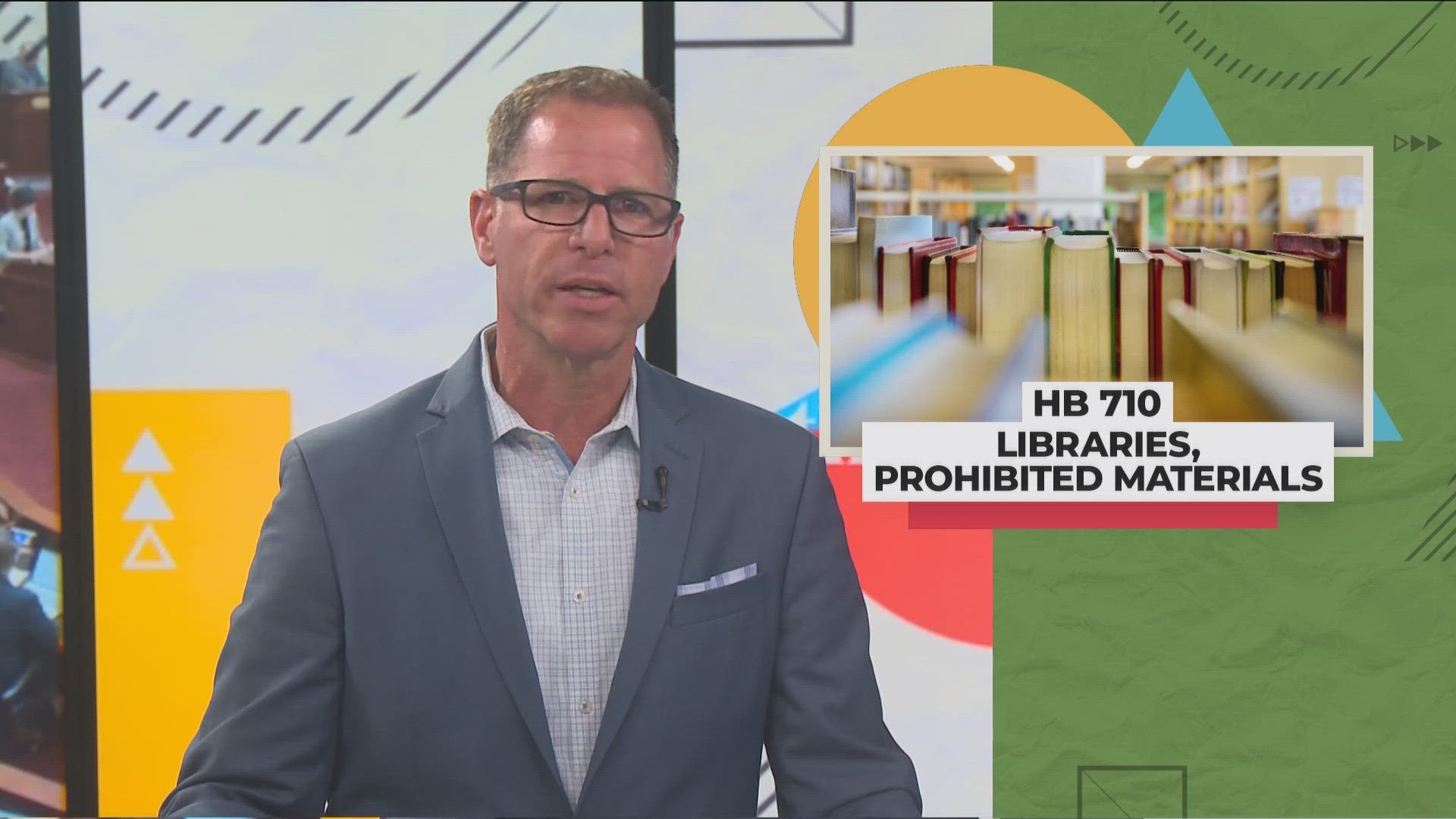BOISE, Idaho — This article originally appeared in the Idaho Press.
After several tries over three years, Idaho now has a law on its books regulating “harmful materials” in libraries.
Gov. Brad Little on Wednesday signed HB 710, which requires public and school libraries to have a form available that anyone may use to request that a material be moved to an adults-only section if they think it includes sexual content that is “harmful to minors,” which is defined in Idaho’s obscenity code. If the material isn't moved within 60 days, individuals may file a civil lawsuit for $250 and other damages and fees against the school or library district.
Little confirmed his action to Idaho Public Television Wednesday morning. The transmittal letter sent with his signature was filed with the House clerk but not read across the desk on the floor at the request of House Majority Leader Jason Monks, R-Meridian.
Little wrote that said he shares the "cosponsors' desire to keep truly inappropriate library materials out of the hands of minors."
"That said, I still believe a greater harm confronts our children — content accessible to them on their phones and devices," Little said in the letter.
He wrote that he will be "watching the implementation and outcomes of this legislation very closely."
Supporters of the bill have said it will protect minors under 18 from accessing sexual content that’s considered harmful, while opponents said that it will be difficult logistically for libraries to have areas accessible only to adults and could invite frivolous litigation.
Last year, the Legislature passed HB 314, which would have allowed people to sue for $2,500 if minors could access harmful materials. Little vetoed the bill, citing his concerns over the civil enforcement mechanism and the “ambiguity” of its definitions, which were also based in the same area of Idaho code.
He wrote in the transmittal bill on HB 710 that the new legislation "addresses most, not all" of the concerns he had over HB 314. He cited the reduction in the civil penalty and the process that "allows a fair opportunity to avoid legal action and fees if they address materials of concern within 60 days."
This year, multiple iterations of library bills were introduced. HB 710 passed after heated debate in the House and Senate.
Rep. Brent Crane, R-Nampa, indicated on the House floor that if this bill didn’t pass, the lawmakers would return to the first library bill proposed, which would have imposed criminal penalties and jail time for librarians who made available harmful materials.
HB 710 requires libraries to have a policy and form in place to challenge these materials. The definitions of “harmful to minors” are based on Idaho’s obscenity code, which has been in place since 1972.
During public testimony, several people objected to the existing definition of sexual conduct, which includes “any act” of homosexuality. Many feared this could be interpreted broadly to challenge books that feature gay characters. A list of challenged titles posted by the Idaho Library Association features many stories featuring LGBTQ characters or themes.
There’s also a section of code that specifies what cannot be “made available” to minors, which includes depictions of “nudity, sexual conduct, or sado-masochistic abuse, that, taken as a whole, is harmful to minors” or “any other material harmful to minors.”
Some worried that “any other material harmful to minors” was vague.
Representatives from library districts said because of concerns over liability, there may be new policies limiting children's access to the libraries without their parents.
The civil enforcement mechanism was a key part of last year's bill, which was drafted by the Idaho Family Policy Center.
Policy Center President Blaine Conzatti said in a Capitol Clarity meeting Feb. 16, 2023, that the civil liability was "the most effective way" to make sure the policy was enforced.
“Insurance companies don’t want to pay out damages, they don’t want to defend their clients, and so what they’ll do, is they will change their policies," Conzatti said in a video recording of the meeting. "The policies that the schools or the libraries are required to abide by if they’re going to be insured by the carrier, and those policies are going to say, ‘hey you’re going to have to remove these books.’ … and here’s what’s going to happen, if a school or a library keeps making this material available to kids, they’re going to lose their insurance coverage.”
HB 710 passed 47-23 in the House and 24-11 in the Senate, and it's set to take effect July 1.
This article originally appeared in the Idaho Press, read more on IdahoPress.com.
Watch more Idaho politics:
See all of our latest political coverage in our YouTube playlist:
HERE ARE MORE WAYS TO GET NEWS FROM KTVB:
Download the KTVB News Mobile App
Apple iOS: Click here to download
Google Play: Click here to download
Watch news reports for FREE on YouTube: KTVB YouTube channel
Stream Live for FREE on ROKU: Add the channel from the ROKU store or by searching 'KTVB'.
Stream Live for FREE on FIRE TV: Search ‘KTVB’ and click ‘Get’ to download.

